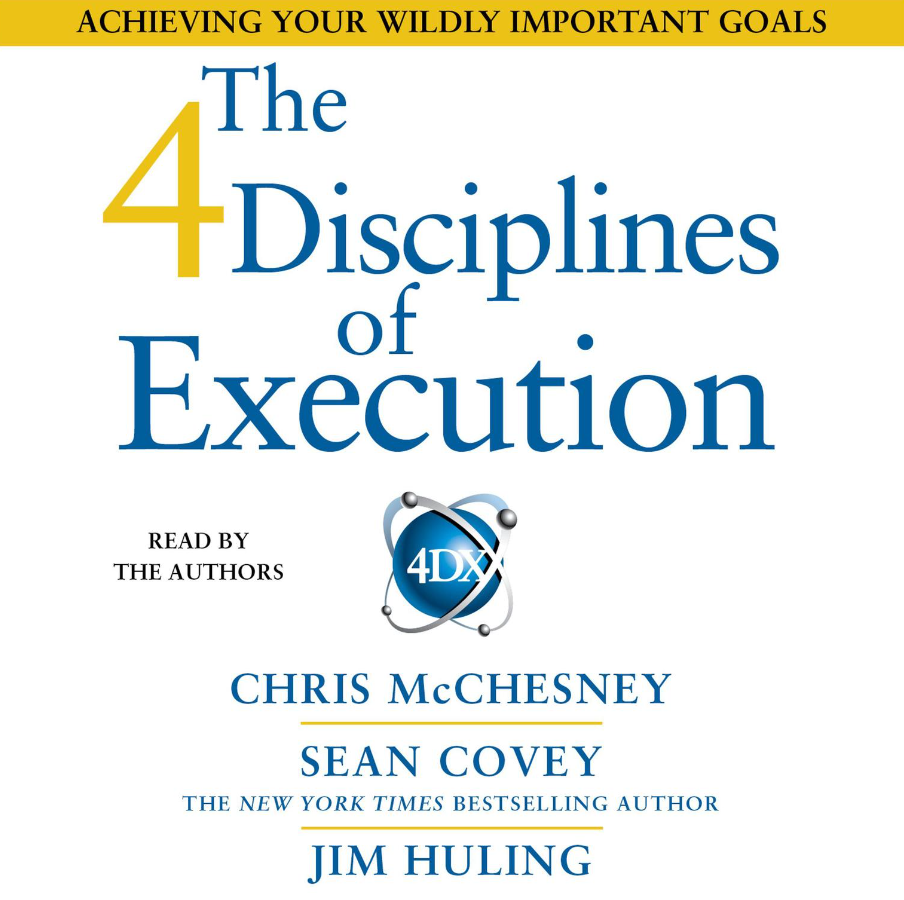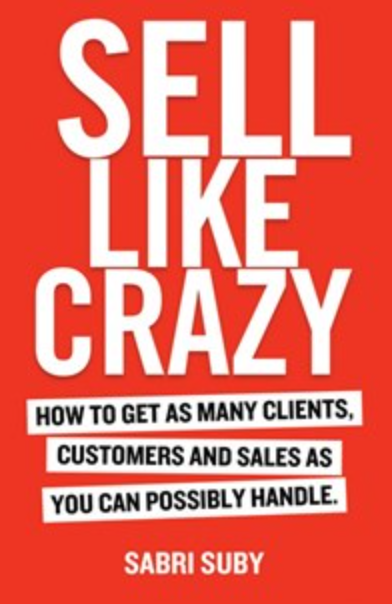Reading hasn’t always been a strength for me. I would get distracted by a thought, a message or by all the tidying up I didn’t need to do…
I’ve built the skill of reading. Not just how to get through books faster, but also how to get focused and stay focused…
As we stacked the bookshelf, I thought to myself - “how many of these have I read?” but then the real question was beyond that… “how many of these books can I accurately recall the key points and which of these key points have I actually applied?”
I never really captured the essence of each book as soon as a finished it. The take aways would remain thoughts and feelings and only remnants of those would remain as a memory.
It’s with this in mind that in 2023, it’s not about how many books I read, but rather, being careful about which ones I choose to re-read and then have an approach of how I apply the learnings from each…
I want to choose 5 books and see to it that I apply the lessons from each one, consistenly.
The Four Disciplines of Execution - Chris McChesney & Sean Covey
I was referred this book by someone who had taken his business and grown it by 10x in 3 years. Someone who sold that business who has now bought 3 gyms in South Australia so that his work aligns with his values and what he cares about. Someone that has done the work and has experienced success.
Reading this book made it really clear to me why so many people have an idea about what they want to implement in their business, but really aren’t organised enough to make sure these implemented ideas take hold and become drivers of the business long term. What I see a lot of, is an idea that lasts for a couple of weeks and then fizzles out.
The 4 disciplines being:
Focus - Covey talks about 4 rules associated with how to keep yourself and your team focused.
Leverage - Lead & lag indicators. Lag indicators indicate how things are going and lead indicators being things that if you do well with, will lead to an improvement of your lag indicators.
Engagement - How do you keep score? Is it live? Is it visible? Is it represented in a meaningful way?
Accountability - Reconnecting the team eith the purpose behind the focus; Refocusing the team on the objective; Keeping people from getting caught up on irrelevant and time intensive details; and meeting at least weekly to cut through the ‘whirlwind’ of everyday technical work.
So how have I applied this?
Understanding what the levers of our performance are has been a critical exercise to help us figure out what the one or two things are that we will have our team trained for and focusing on. It is not rebooking rates, patient visit averages, cancellation rates or appointment numbers. For us, it’s how many patients have a meaningful goal? and this will lead to an improvement in all of our lag indicators.
I was referred this book by several people who had to improve their time management skills in order to get things done. Although I personally don’t have issues with execution, it’s usually because of my grit and determination to get things done, which for me, often meant that I was getting things done at 9pm on a regular basis.
This book dives into the improtance of identifying the ONE thing that makes everything else unnecessary. It talks about getting really clear on where you want to go and how to break it down into small pieces so that it’s achievable by doing one thing.
Chunking your time so that the majority of your day is focused on the one thing allows you to make sure you’re spending your time on your priority as well as making sure this chunk of time is scheduled when you are your most productive.
So how I’ve applied this:
What this led to, was identifying the small (automatic) pieces of my role and organising these into segmeted parts of my day, the same way that I would have patients booked in.
This exercise had a profound two-pronged effect:
I realised I had far less time during my day and I was being far too liberal in giving my time to others
It forced me to start saying no to things and instead, prioritise the ONE thing that was going to have the biggest impact every day.
The ONE Thing - Gary Keller
Leadership Strategies & Tactics - Jocko Willink
I’ve always been a fan of Jocko’s books and the way he writes. It’s evident that he writes from experience, and his storytelling capabilities keeps me entertained but also enhances my understanding of what he is trying to get across.
I had so many conceptual take aways - noteworthy mentions:
Detachment
Arrogance + humility
Respect and transparency up and down the chain
Do things that are rankless
Looking down and in vs up and out
Micromanagement vs autonomy
These are just to name a few.
In my view, this is a leadership handbook. Chip through it and apply things gradually. It’s worth reading it from cover to cover, but when it comes to applying it, I’d go one chapter at a time.
So how I’ve applied this:
This book has formed the basis of our monthly leadership training and upskilling. In particular “detachment”. We tend to have a habit of getting caught up in the “whirlwind” of every day, rather than zooming out and being the observer.
For those of you that know me well, I pursue emotional and spiritual growth like a raging bull… Wherever there is resistance, I will chase it. The reason for this is because I have conditioned myself to knowing, undeniably, that if I do the internal work, I benefit and so does everyone everything else around me that I interact with.
I could tell that there are patterns associated with how to lead, how to interact with and how to influence people around me… I mean, I even went back to uni and attained by Graduate Certificate in Psychology of Business and Management. This book was recommended within a different book that I was reading and so I followed the breadcrumbs and it made my top 5 for the year.
This is a book that describes various emotions and how they present in different contexts. It goes into detail, the nuances between emotions and how they can be harnessed, leveraged and how they might present if they are suppressed.
There is a point made about the importance of feeling and experiencing emotions and leaning into what you feel in order to understand what you feel and why that might be. That our emotions are the greatest teachers if we choose to listen to them and then learn from them in order to build a greater understanding of ourselves.
How I’ve applied this:
Emotions come up throughout the day, in dealing with certain situations. Different parts of the business make me feel different things. The relationship that I have with winning, losing, finance, marketing, one team member or another… The emotions will vary from context to content. So the question I’ve actively had to ask myself whenever I sense a strong feeling arise… “what is happening for me right now?…. What does this mean?…. What do I need to do before I respond?”.
Emotional Advantage - Randy Taran
I came across this book after being expertly targeted on Facebook by the author’s company. Lead ad after lead ad, it’s like they were reading my mind. I was most certainly intrigued as to how this was being done and I was keen to learn more, but also not quite ready to click the ad. Until, I saw an offer I couldn't refuse - a free copy of this book delivered to me - no strings attached.
I had a feeling that the book was going to be a sales pitch… It was… AND it provided an incredible amount of value. This is most definitely not a book for someone who wants quick fix marketing campaigns. This is a book for people who are already doing, or prepared to do the work required to generate lot of leads, long term.
Something that stood out to me was that onl 3% of traffic is ready to buy now/book now… So the book helps you answer the question of what you’re supposed to do with the other 97%… The answer on the surface is simple - add value.
This book is a blueprint on how to generate leads and make sales across all platforms. It’s an excellent framework and “how-to” from someone with obvious know-how and expertise.
How I’ve applied this:
It helped me build an understanding of how I should be talking to 97% of the traffic that’s visiting our website. This is literally what I’m working on at the time of writing this (28th of December 2022). If the large majority of traffic to your digital doorstep is not ready to buy yet, then how do we talk to and entice these people to stay a while and build a relationship?
Utilising the “high value content” that we already have as assets within the company (workshops, videos, “how-to” intructionals) and position them as the reason people should stay around.







